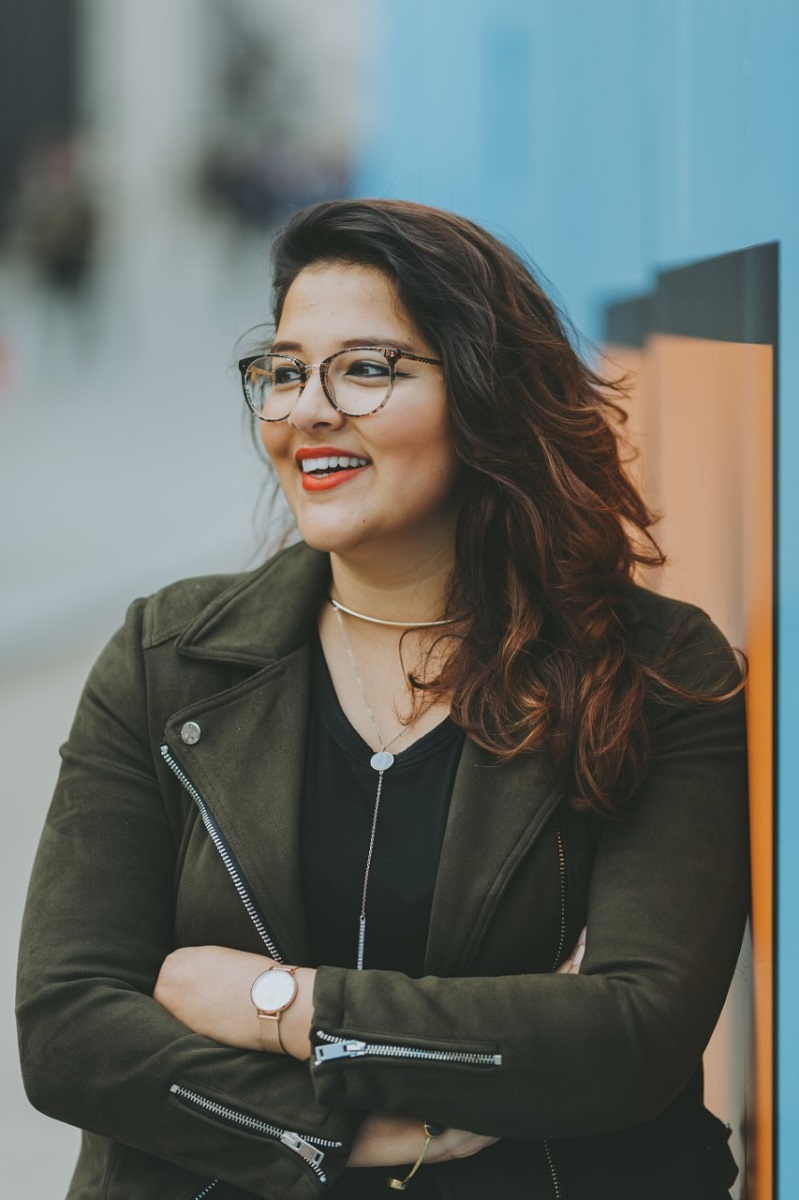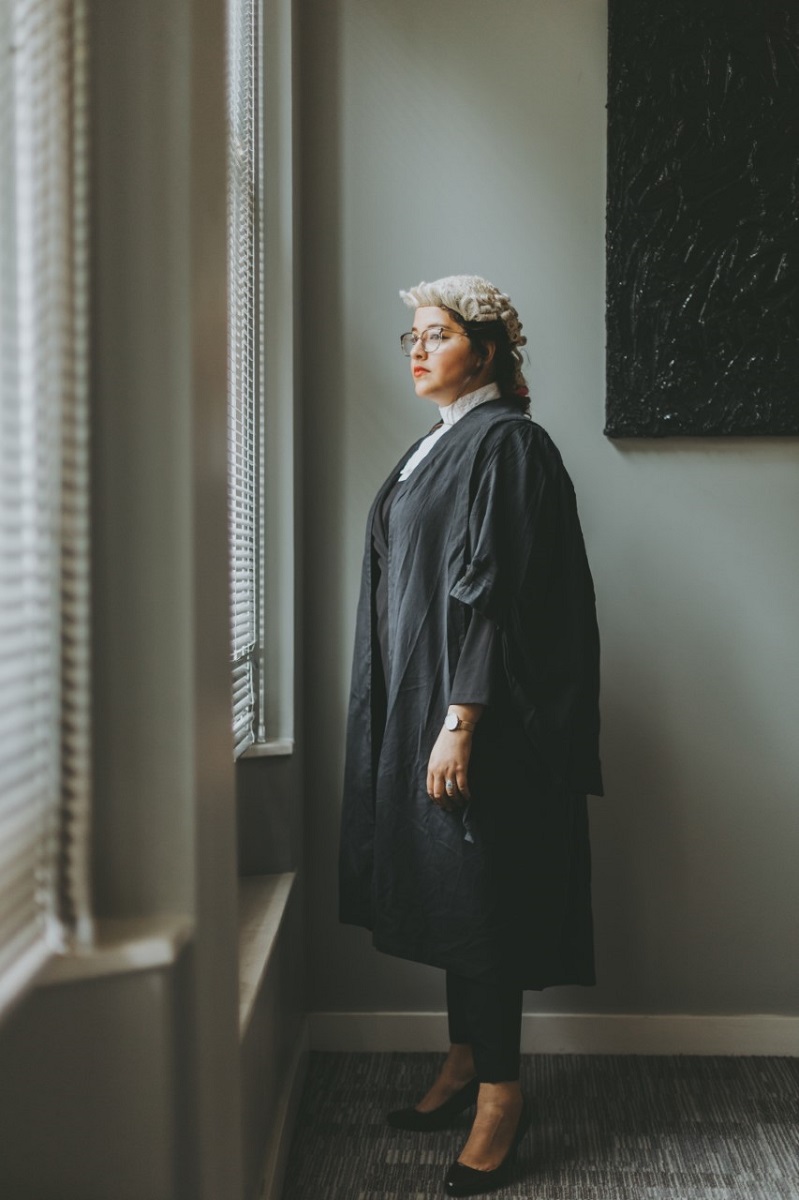What does a barrister do? How can barristers diversify their work? And can you work in law at the same time as being critical of it? Barrister Zeenat Islam, who has worked on the Grenfell Tower and Covid-19 Inquiries, shares her route into the role and offers advice for aspiring barristers.
“I always wanted to be a barrister, even when I was very little. I had these grand ideas about being an advocate and doing something which made a difference in people’s lives, as well as doing lots of talking! I ended up going to Warwick University to study law and it was a fantastic three years. The course was about law in context – not black letter law but how the law impacted everyday people in real life. That solidified that I wanted to be involved with work that contributed to social justice. I then did a master’s in Public International Law where I enjoyed learning more about critical approaches to law.”

How did you become a barrister working on high-profile national inquiries?
“I completed pupillage at a leading criminal defence set, which was really challenging but rewarding. I believe criminal practice provides the best training ground. You are forced to have to think on your feet, deal with difficult situations, complex issues and represent people from all walks of life – it really is an education. My early years in criminal practice have served me really well for developing into other areas.
“When the opportunity came up to be involved with the Grenfell Inquiry, I was keen to diversify my skill set. I have been instructed on the Grenfell Inquiry from the outset in 2017 and more recently I have been appointed to the UK Covid-19 inquiry. I am interested in understanding systemic issues and broader policies and decision making as part of establishing truth and accountability.”
What is the difference between the role of a criminal barrister and a barrister in public inquiries?
“Criminal proceedings are adversarial and inquiry proceedings are inquisitorial. In crime, the prosecution must prove their case beyond reasonable doubt and the jury or judge/magistrates decide whether that standard has been met. Public inquiries, are different in that they are more about finding truth, asking questions and establishing what happened, in order or to learn lessons for the future.”
What challenges do you face in your work as a barrister?
“It’s easy to become desensitized – where each case just becomes another case. Legal processes can be intimidating and alienating. It is important that the public and those interacting with the law, have confidence with the process. I think more needs to be done in this respect and it is something I try and give effect to, in my work.
The challenge for me is taking my lawyer hat off and remembering the human story. It’s important to approach each case with fresh eyes and not lose sight of the human focus.
What drives you and what frustrates you about the law and your work as a barrister?
“I am continually thinking about my personal theory of change and how I can make the most impact. Sometimes, I have questioned whether I can be more influential within the system or outside of it. It is a difficult question, which I still grapple with. But I do believe it is important for people from different backgrounds, lived experiences and perspectives to be in the law – because if we aren’t, who is offering those alternative perspectives? I am a lawyer, I’ve got a particular skill set, I therefore find myself in particular spaces, that others do not. What can I do to offer my voice and the voices of people like me, which often are not heard, in that particular space?
“I think it is imperative for all lawyers to have a critical understanding of the law, whilst seeking to advocate for those who need it. It’s also important not to have rose-tinted glasses. We can make a difference for the people we represent, or the issues we are working on, but it’s important not to get lost in what we perceive those victories to be. Systemic injustices remain and it is the root of the issues that needs to be addressed.”
What do you enjoy most about being a barrister?
“I love the independence that comes with being self-employed, managing my own diary and deciding what hours I’m working. I like that freedom. Being self-employed has also allowed me to develop a portfolio career where I undertake other roles alongside my practice – I really enjoy the variety.
“I like thinking about, systemically, why are things going wrong and examining what can be done to ensure that doesn’t happen in the future.
“I enjoy being able to offer alternative perspectives based on my experiences that may not have already been considered, in working towards more equitable decisions and processes.”

And what don’t you like about the job?
“I think we can become consumed in our career, because our work is so important to us. Sometimes it’s important to find a way to switch off the barrister bit of me and remember there are other elements of me that I need to nurture. I think it’s important to focus on other things as well, whether that’s family, faith or other interests. I want to be a good barrister, but the first priority is, how can I be the best person that I can be? If we work on ourselves holistically, it will naturally improve our work, relationships and every aspect of our lives. It’s about achieving and retaining balance.”
What careers advice would you give to law students and aspiring barristers?
“I think my advice for young people interested in law would be, firstly, remember why you’re embarking on this path and try not to get lost in a conveyor-belt mentality. It’s not the type of career you can do half-heartedly, and it’s also the type of career where you could wake up aged 40 or 50 and think, ‘Oh my god, where did the last however-many-years go?’ It’s so easy to feel like you’re being conditioned to go down a particular route because it seems the obvious thing to do, but that doesn’t mean it’s the right thing for you. Step back and think about why you’re doing it.
“Secondly, have a plan but don’t be bound to it. What you think your life is going to look like may not be what it looks like. Don’t be worried about that. If you allow yourself to try different things along the way, you’ll grow tremendously from all those experiences. I’m doing work now that I had never thought I would be doing. My path has turned out very differently to what I had envisaged!
“Remember the human element behind every interaction and every set of papers.”
A day in the life of a barrister…
“As a criminal barrister, your role will differ depending on whether you are prosecuting or defending.
A criminal barrister’s work, day in, day out, can involve multiple courts a day and lots of travelling. You might be in Swansea one day, then Liverpool, then Newcastle, then Cornwall, doing multiple cases back-to-back with very little time to prepare.
“As an inquiry practitioner you are involved with a widespread investigation over a significant period of time. There are often tens of thousands of documents that must be reviewed and analysed. All of that has to be distilled, so that by the time it gets to hearings, you know what witness you are calling and what you want to ask them. After the hearings, you must marshal all that evidence to identify key findings for the report. Inquiry work allows more of a work-life balance overall, but there are very intense periods!”
Follow Zeenat’s work via LinkedIn or Instagram.
This is one in a series of human rights careers interviews, advising on the first steps to securing a job that makes a difference. Read more here:
- How to be a human rights lawyer
- How to be a public law solicitor
- Building a human rights career: What are my options?
If you work in a human rights-related career and want to share your story, get in touch with us at hello@lacuna.org.uk



